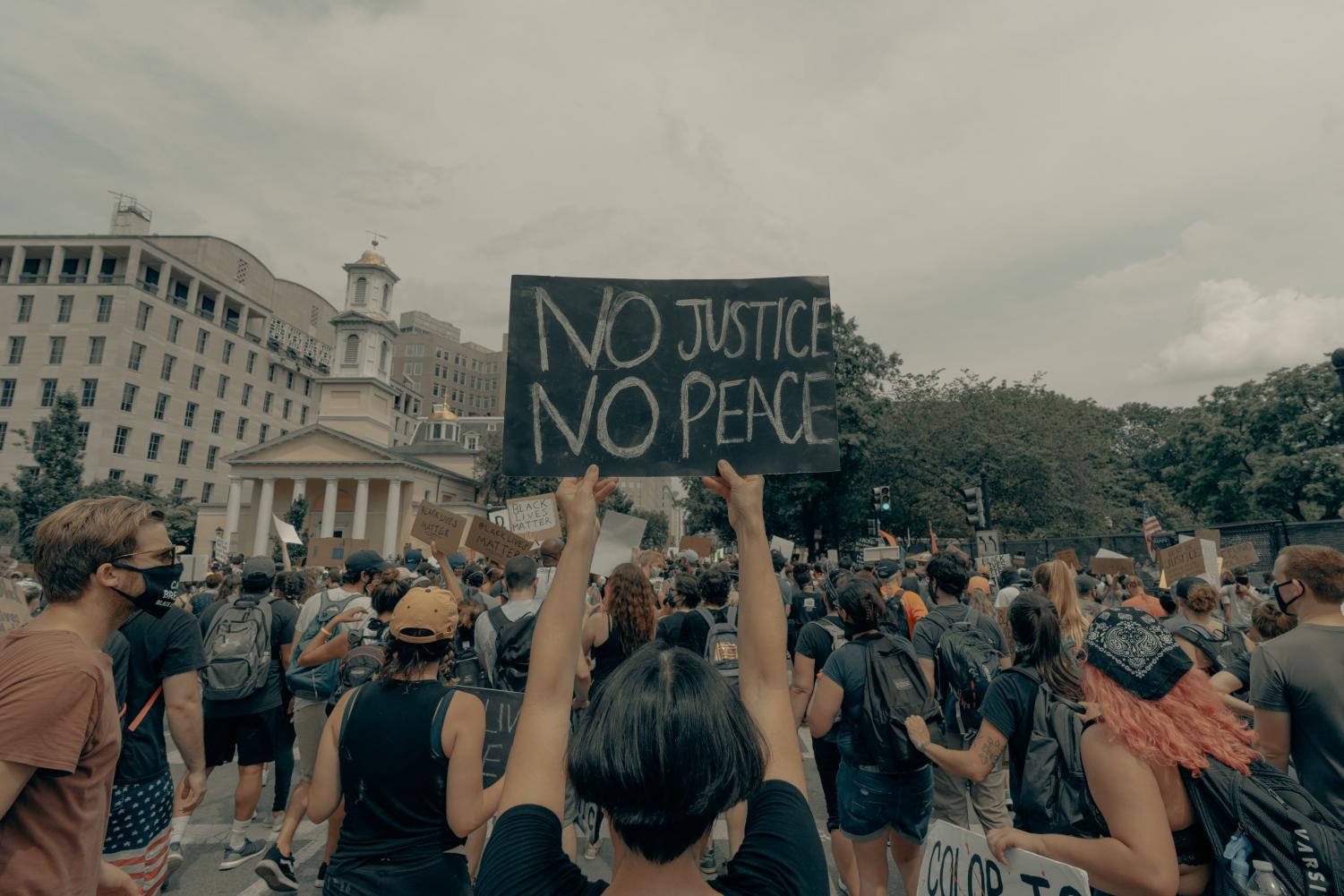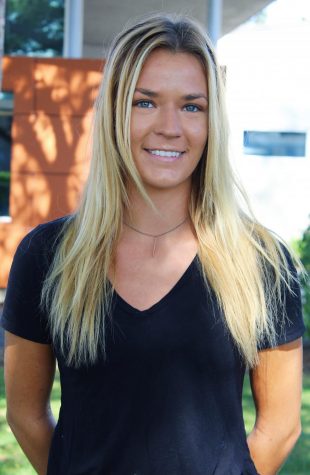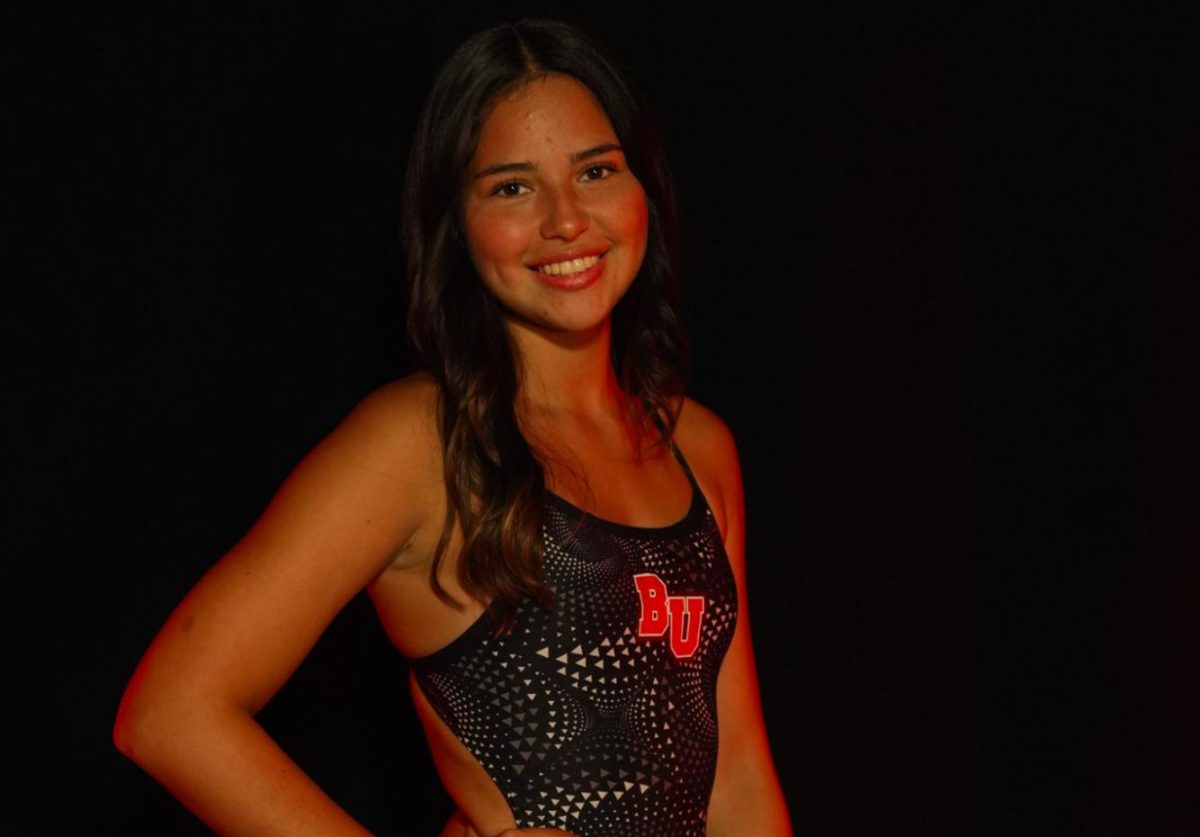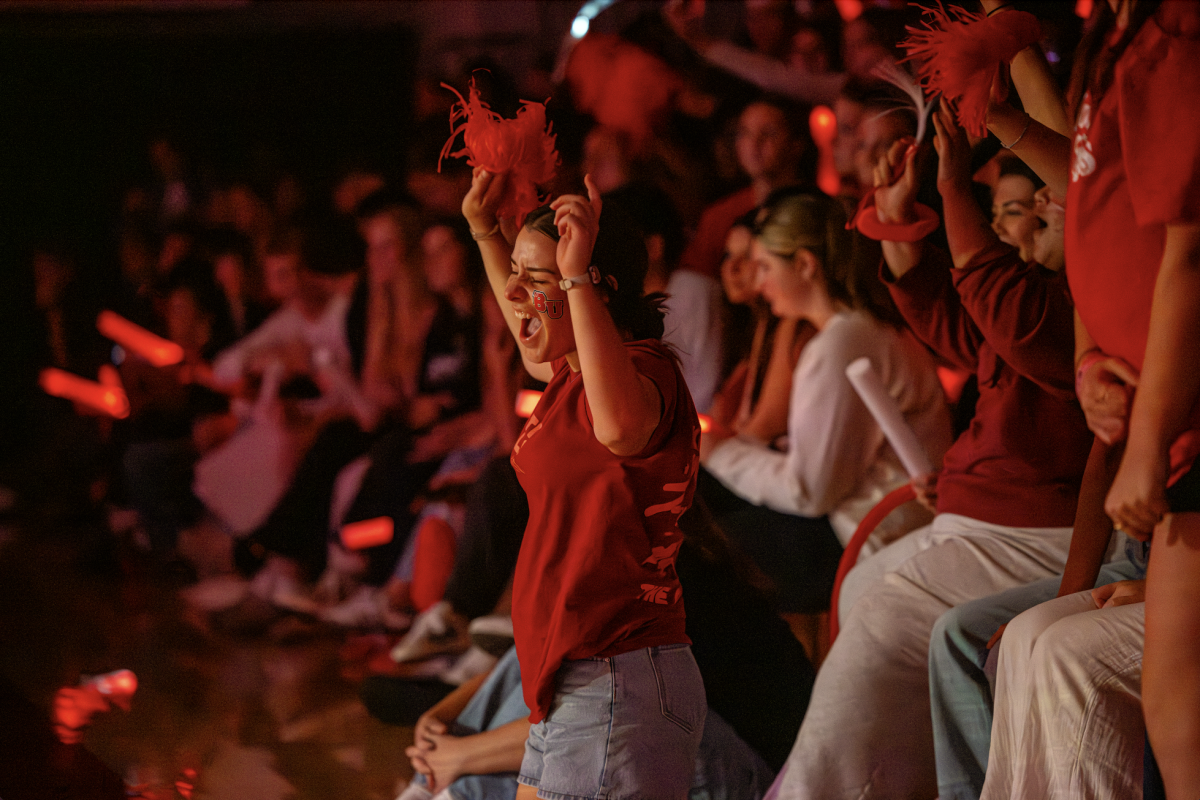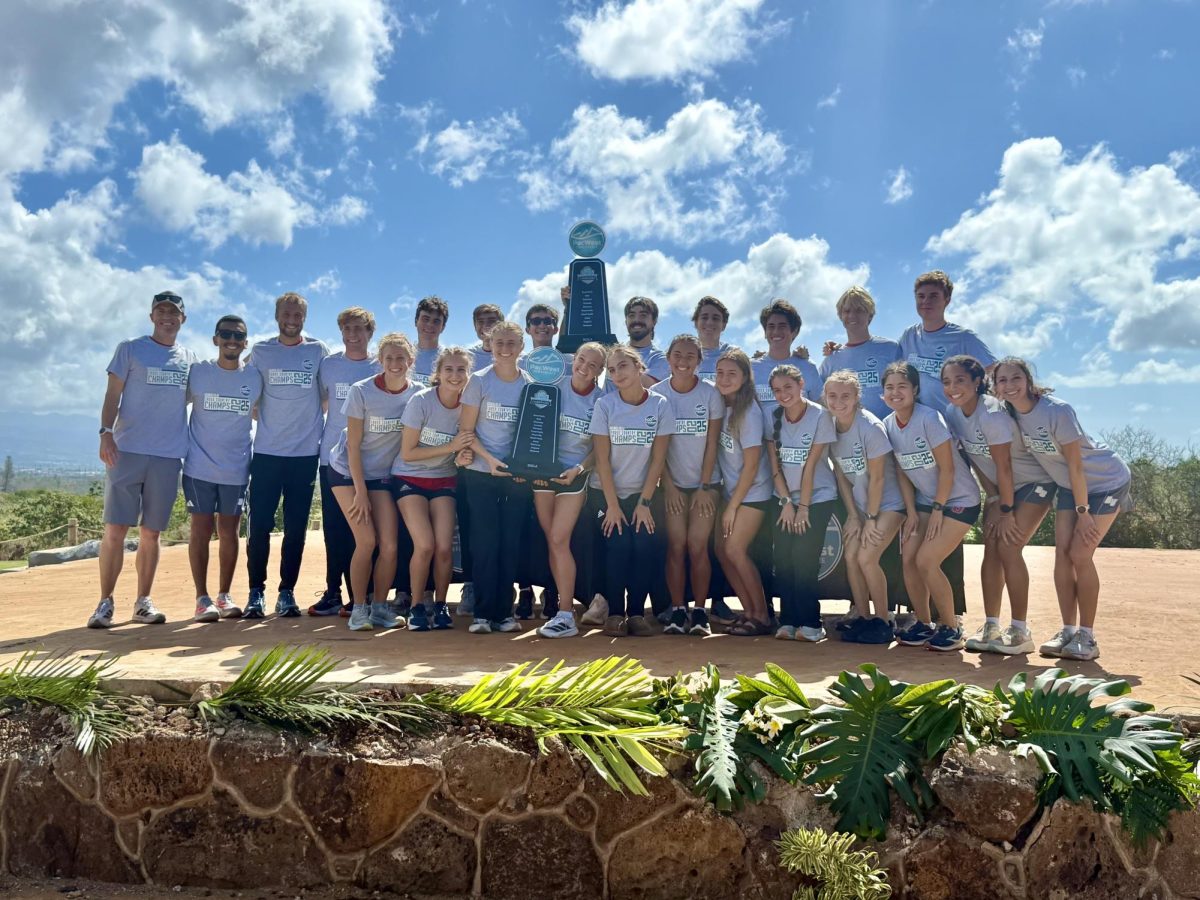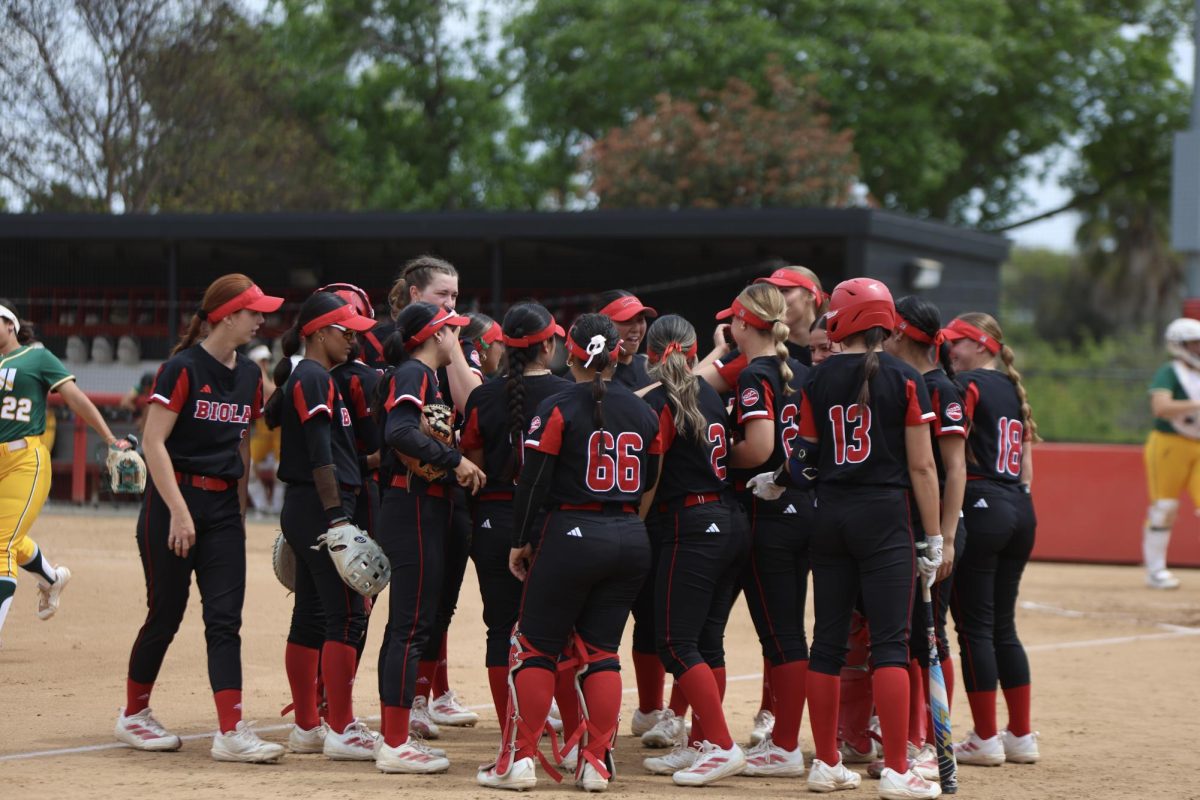On Aug. 26, the Milwaukee Bucks were scheduled to compete in game 5 of their playoff matchup between the Orlando Magic inside of the COVID-19 inspired NBA bubble at Walt Disney World in Florida. When the clock hit 4 p.m. EST. and the Bucks were nowhere to be seen for the start of play, an unprecedented strike from the athletes in Milwaukee formed in response to the shooting of Jacob Blake on Aug. 23, in Kenosha, Winsconsin. This comes just three months after the horrific death of George Floyd. While both of these forms of police brutality were found in the Midwest, racial tension has been felt everywhere—including Biola.
The NBA has been one of the most outspoken sports organizations in regards to the Black Lives Matter movement. Many of the players are wearing social justice messages on the back of their jerseys. The league also painted in immense bold letters, “BLACK LIVES MATTER” on the top lane of each court. So a refusal to play after yet another unnecessary shooting was not out of question. The Bucks made the first move, and the protests exploded from there.
The official statement made by the Bucks quickly progressed to other NBA teams who were scheduled to play on that Wednesday evening. The Oklahoma City Thunder, Houston Rockets, Portland Trail Blazers and Los Angeles Lakers, all left the hardwood to an echo, boycotting their playoff matchups scheduled for that day. The WNBA, MLB and MLS all followed in refusal to play, extending the expression of disappointment in our societies law and order, and freedom of all.
In the Milkwaukee Bucks’ official statement, they issued a “calling for justice for Jacob Blake and demand the officers be held accountable,” according to a tweet from the organization.
BIOLA’S RESPONSE TO BOYCOTT
Aysia Johnson, a junior guard on Biola’s women’s basketball team, saw the historic boycotting unfold and praised the players’ decisions to make a bold but necessary change.
“It showed unity. Black people will no longer suffer without a voice,” Johnson said.
Alex Wright, a junior guard on Biola’s men’s basketball team and a Black athlete, supports the NBA’s decision to boycott in the wake of Blake’s fatal confrontation with the police. The stand for racial justice seems to be heard now more than ever because of the highly influential personnel that have taken a stance. However, Wright is skeptical about the long-term impact the recent movement will have.
“I feel that people are forced to see that [systemic racism] affects everyone and that it is not OK, but when I’m talking to some of the people around me about it, it became apparent that people don’t fully get why they [boycotted] and they were more concerned about being entertained during quarantine than the real issues, and that was very disheartening for me,” Wright explained.
EAGLES ENCOUNTER RACISM
Wright came to Biola from a predominantly white Christian high school. While he did not experience big hurdles with racism in this community, ignorance of others was a battle he had to overcome.
“A lot of times people will build a mold of who I am or should be before they even meet me based on how I look and what they’ve heard or read about the ‘Black culture,’” Wright explained. “Even those close to me have said some things that cross the line—and it can no doubt be unintentional—but it still happens. I have grown up in it so I have become accustomed to these comments but that doesn’t mean they are OK.”
Johnson has also had her fair share of daily obstacles growing up as a Black woman in a judgemental society.
“Growing up, people have looked at me and automatically assumed that I am mean and unapproachable,” Johnson said. “I know that I’m not one to be a smiley, bubbly person, but being told that I am unapproachable should not be the norm… I’ve been told that I look judgemental, and I always thought that, ‘oh it’s just because I don’t smile.’ It was then that I realized that the color of my skin does have an effect on people and people to make assumptions.”
One of the biggest stereotypes that Black people have to face is the assumption that they are athletic. Johnson has put in numerous hours on the court to perfect her craft—her talents were not just handed to her.
“A lot of people who see me play associate me being athletic because I’m Black,” Johnson said. “They will say, ‘wow you must have good genes.’ This is always discouraging for me because people assumed that I got to where I am because of my genes, but the truth is I worked my butt off to get here.”
TIME FOR CHANGE
While it is easy to get caught up in the excitement of sports and the rush competition can provide a person, it is pivotal to remember that there are things in life that are bigger than sports—like racial justice and equality.
“I would like to see a level of respect to all races when it comes to intercollegiate competition,” Wright said. “At the end of the day, people should respect people and show the same love that God shows us everyday to everyone we come in contact to.”
The NBA has used their platform to promote the call of racial equality in a country built on freedom. The goal is to inspire all communities to find unity and bring justice.
“I urge Biola to be more aware and to examine personal stereotypes that may be projected on people who are different than you,” Wright said. “People are never who you assume them to be, there is always a story and there is always something deeper and you should care to know what that is. Not just Blacks but all minorities are hurting and it’s not okay to brush them aside and try to live in a bubble shielded from what is going on. Confront it and grow from it. That’s your call as a Christian and human being.”



